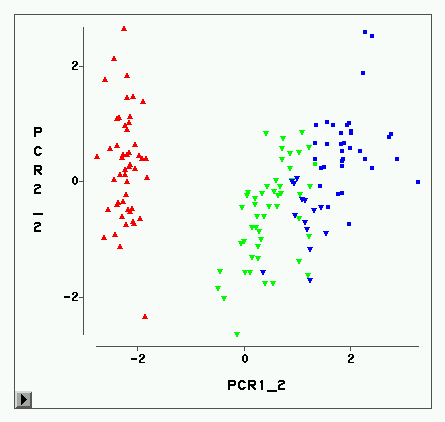Objective: The aim of this research is to demonstrate how the use of hierarchical cluster analysis on 366 municipalities and other minor entities (parishes) of Venezuela, could be useful to consider regional differences and similarities between territorial entities when designing national public policies of Water, Sanitation and Hygiene (WASH) based on evidence. Methods and results: Consider data from various sources to characterize the population of Venezuela through their territorial entities. Select variables at the level of the territorial entities to cover demographic characteristics, mortality and nutrition, coverage of reliable water and sanitation services, access to education, and access to information and communication technologies. Classify the territorial entities into a limited number of mutually exclusive groups using hierarchical clustering techniques and based on proximity in the multi-dimensional space. Adjust of assignments, reallocating some entities into a different group based on the specialists' opinion about its hierarchy in the cities regional system and its geographic location. Define an indicator to verify the consistency of the groups built. Conduct a statistical analysis to confirm separation of the groups. Demonstrate the utility of the results with some examples of common analysis when building a sanitary public policy, using seven distinct groups of recommendations depending on each cluster. Conclusions: Cluster analysis can be a useful method to analyse relevant differences between territorial entities when designing national public policies based on evidence.
翻译:研究的目的是说明在根据证据制定国家水、环境卫生和个人卫生公共政策时,如何利用对委内瑞拉366个城市和其他次要实体(省份)的等级类集分析,来考虑领土实体之间的区域差异和相似之处。 方法和结果:考虑各种来源的数据,以通过其领土实体对委内瑞拉人口进行定性;在领土实体一级选择变量,以涵盖人口特征、死亡率和营养、可靠的供水和卫生服务的覆盖面、获得教育的机会以及获得信息和通信技术的机会。将领土实体分类为为数有限的相互排斥的群体,使用等级类集技术,并基于多维空间的近距离。调整任务,根据专家对其在城市区域系统中的等级和地理位置的意见,将一些实体重新分配给不同的群体。界定一个指标,以核实所建立的群体的一致性。进行统计分析,以确认这些团体的分离情况。在制订卫生公共政策时,利用七个不同的建议组别来说明结果的效用。结论:在设计国家政策时,分组分析国家实体之间的相关差异时,可以采用有用的方法。



